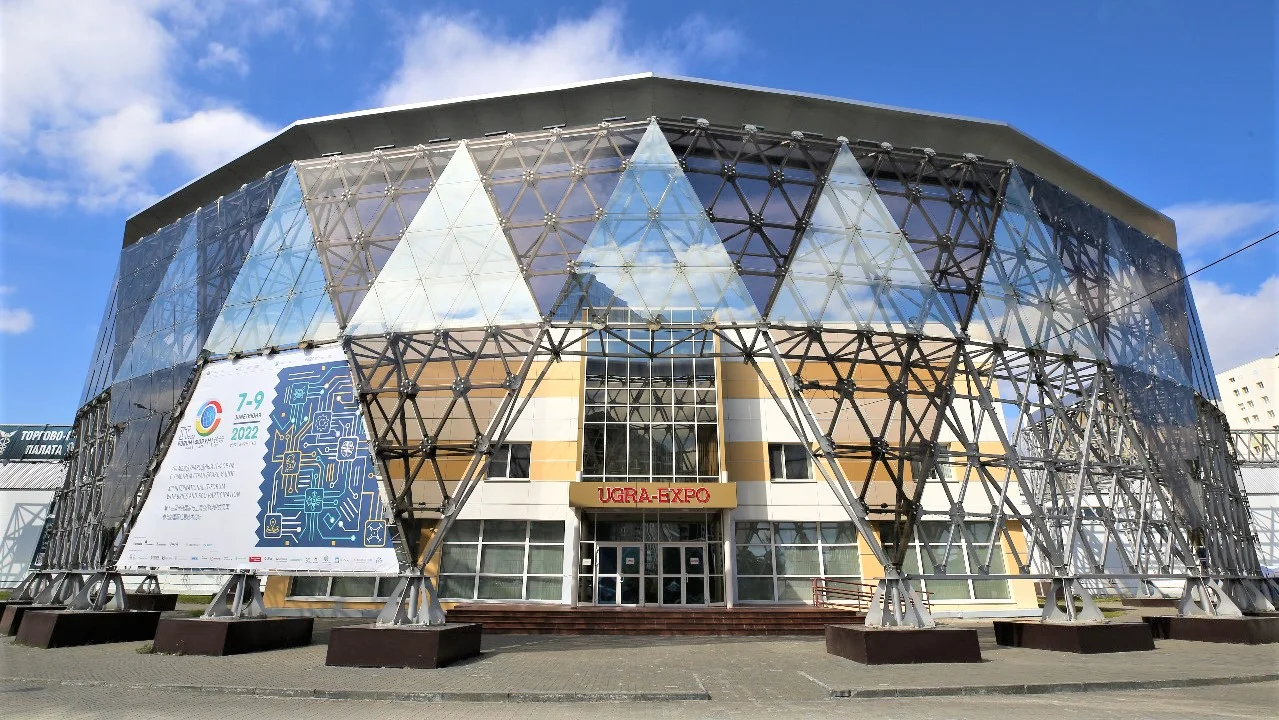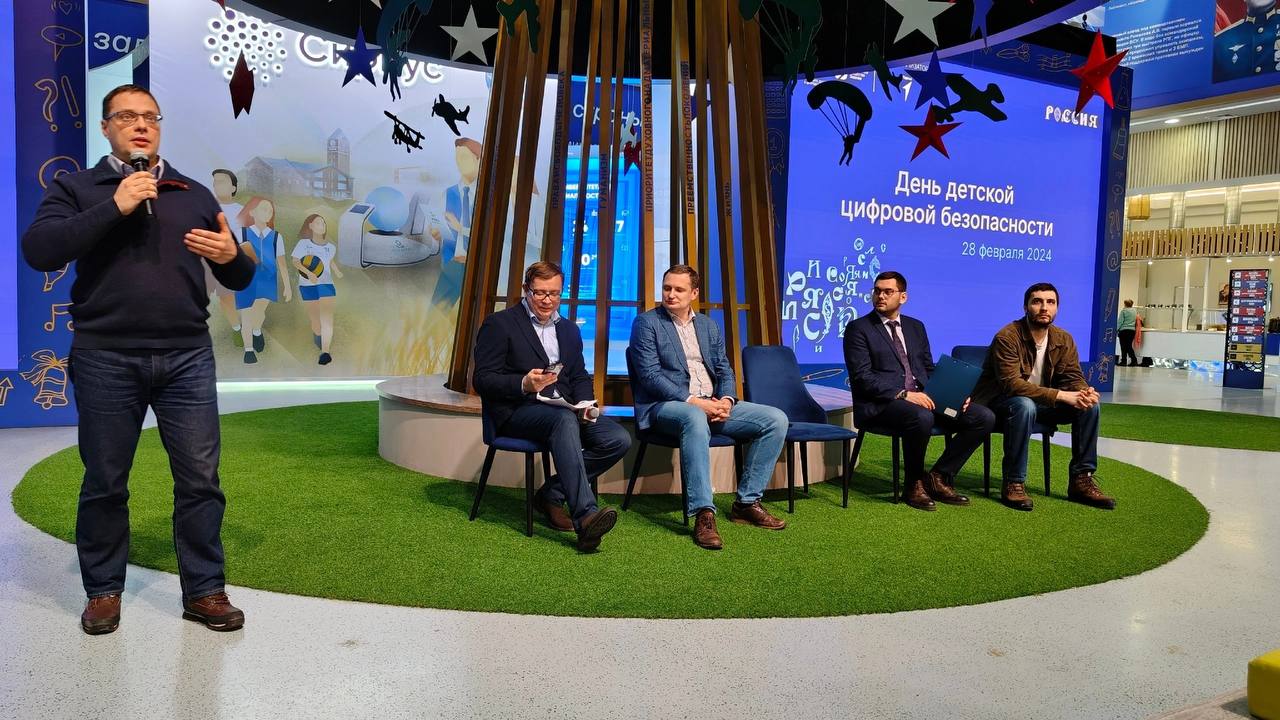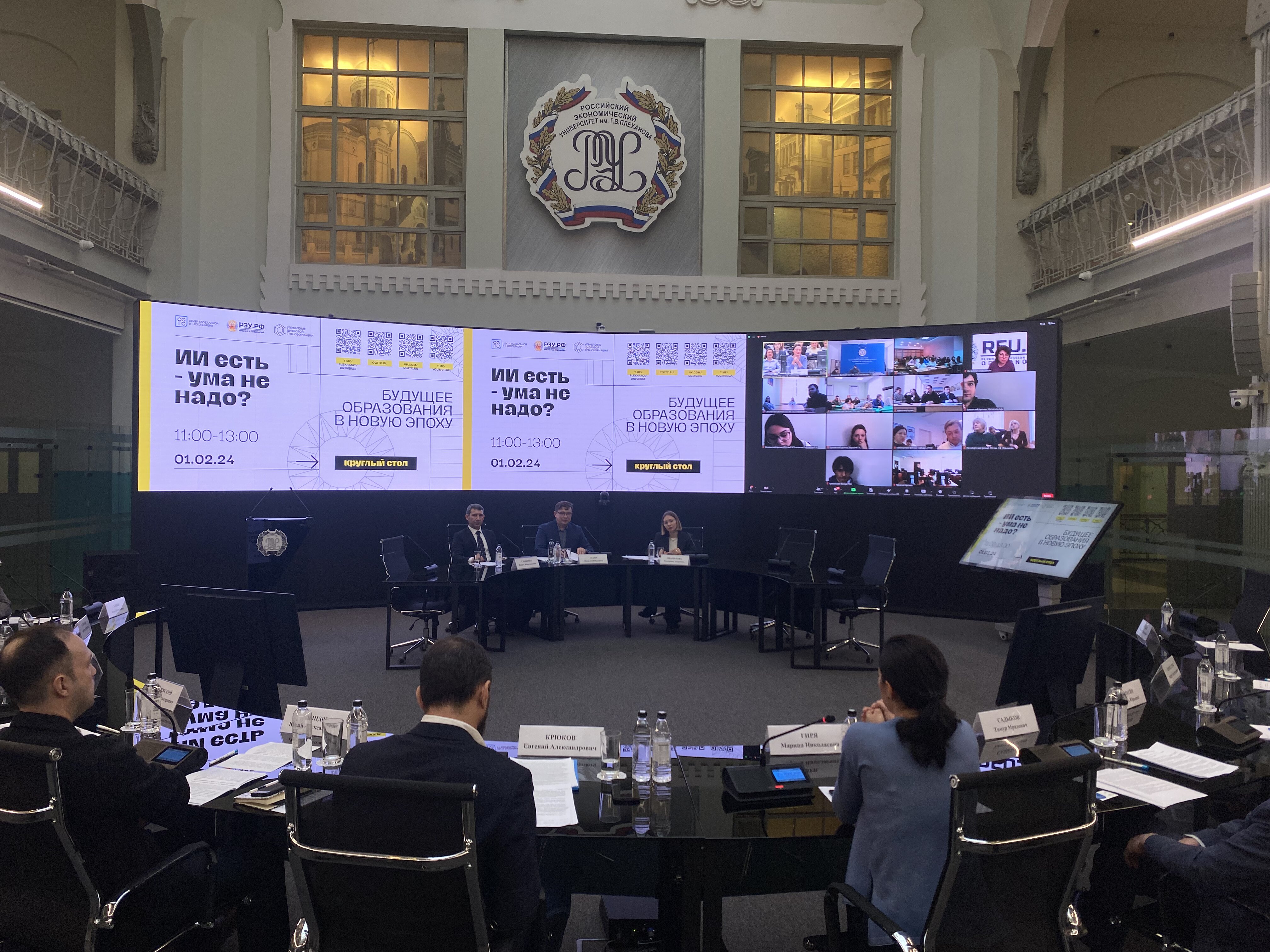Deputy Head of Roskachestvo (Russian Quality System) Anton Kukanov, Academic Director of the Education Centre for Digital Transformation Teams and CDTOs of the Graduate School of Public Management of RANEPA Ekaterina Potapova, Head of Child Online Safety at Kaspersky Lab and a representative of the Alliance for the Protection of Children in the Digital Environment Andrey Sidenko, Director of the International Innovative Institute for Artificial Intelligence, Cybersecurity, and Communications named after A. Popov of ETU “LETI” Kirill Krinkin, Head of the institute’s Department for Artificial Intelligence in Physiology and Medicine Yulia Shichkina, and Content Manager of the Center for Global IT-Cooperation Alina Ustinova participated in the discussion, which was moderated by Andrey Ignatiev, Head of Information and Analytics at the Center.
The discussion centered around the most prominent online dangers and threats to children and teenagers as well as preventive and protection measures against negative online influence. Andrey Sidenko, who represented the Alliance, spoke on the initiatives that had already been implemented in Russia, such as the Digital Ethics of Childhood Charter. He also gave some insight into the ways the state and business ensure children’s safety in the digital environment, for example, when fighting against the distribution of child pornography.
The Center for Global IT-Cooperation presented its new study “International Practices in Child Online Protection,” an analysis of foreign approaches to the problem of child protection in the digital environment. The study presents political trends and the main practical tools used in the field, identifies the field’s typical problems and promising objectives. It provides an overall picture of the field’s mainline tendencies existing abroad and informs about the most likely direction of its future development. The findings are based on analytical studies, review articles, soft law instruments, laws, regulations, and public debate topics raised in foreign countries.
The Center’s representatives covered other CGITC’s projects as well, such as the Youth Internet Governance Forum, where the fight against destructive content and the protection of children and youth’s rights online were two of the topics that had received most attention and the highest priority.
Anton Kukanov spoke on the assessment of parental controls conducted by Roskachestvo. According to the expert, some of the apps that have this option are not quite effective and often request access to an inadequate amount of confidential user data, which means that users have to choose between safety and safety and either keep themselves safe from destructive content or protect the safety of their personal data.
“Even the most basic data shouldn’t be shared with companies. Companies tend to sell them for advertising purposes, which allows them to know more about our lives than we’d like them to. This is especially true for small companies and less popular apps,” Ekaterina Potapova warned. Decisions made with artificial intelligence, for example, choosing a career by using predictive algorithms, are more likely to do harm than good, mostly because algorithms are not perfect and often consider single decisions to be repeated ones, the expert added.
The International IT-Forum with BRICS and SCO participation is recognized as the leading global platform for political and business networking as well as discussions on the latest digital economy development trends. The Forum brings together members of the diplomatic corps representing their countries in Russia, representatives of federal and regional state bodies, IT companies, public and research organizations, and foreign expert communities.





